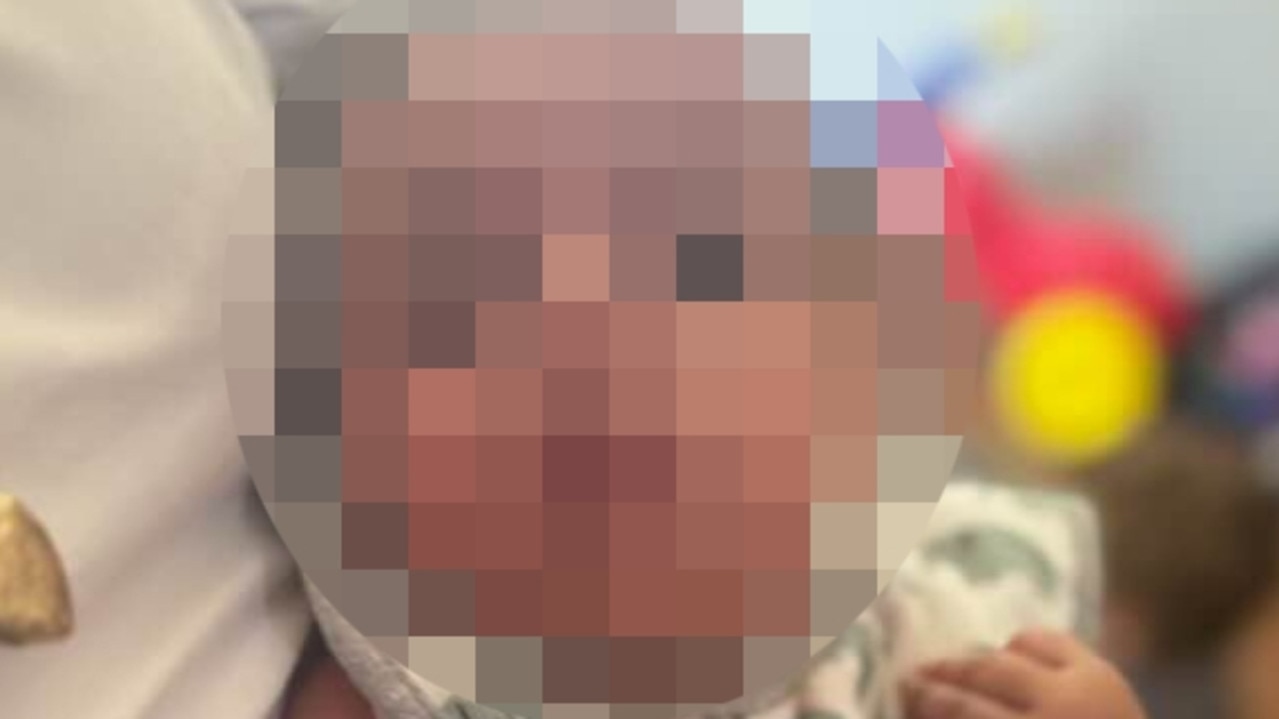Final report handed down into child sex abuse
AUSTRALIA’s Catholic Bishops have promised to take the Royal Commission into child sexual abuse’s findings to the Holy See after the final report suggested priest’s inability to have sex and marry contributed to “catastrophic failures” to protect children.
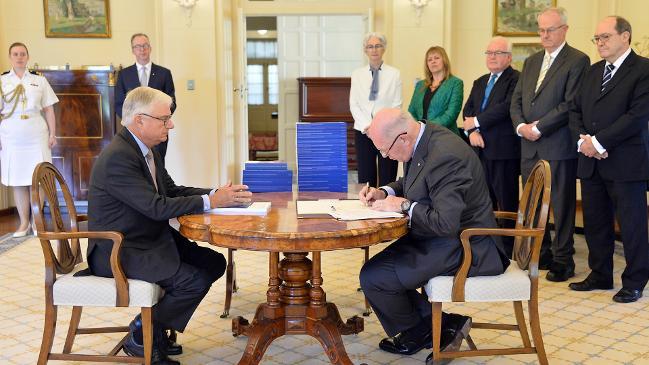
NSW
Don't miss out on the headlines from NSW. Followed categories will be added to My News.
Catholic priests and other clergy should be able to have sex and marry after “catastrophic failures” to protect children from sex abuse, it has been recommended.
The recommendation to end compulsory celibacy in the Catholic Church’s religious ranks is the most explosive suggestion to emerge in the final report of the child sex abuse royal commission released today.
The commission said that forced celibacy had led to sexual dysfunction, childish interests and behaviour.
It has recommended that the Australian Catholic Bishops Conference “request the Holy See consider introducing voluntary celibacy for diocesan clergy.”
“We have concluded that there were catastrophic failures of leadership of Catholic Church authorities over many decades, particularly before the 1990s,” the report states.
“Those failures led to the suffering of a great number of children, their families and wider communities.
“For many, the harm was irreparable. In numerous cases, that harm could have been avoided had Catholic Church authorities acted in the interests of children rather than in their own interests.”
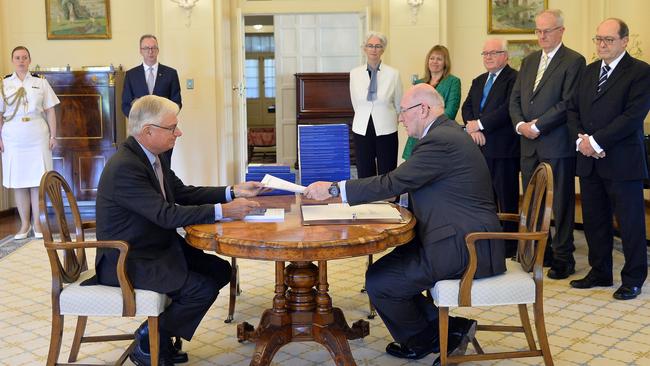
There was evidence of literally thousands of alleged perpetrators of child sexual abuse in religious institutions with Catholic institutions the worst, the report states.
“While not a direct cause of child sexual abuse, we are satisfied that compulsory celibacy (for clergy) and vowed chastity (for members of religious institutes) have contributed to the occurrence of child sexual abuse,” the commission said.
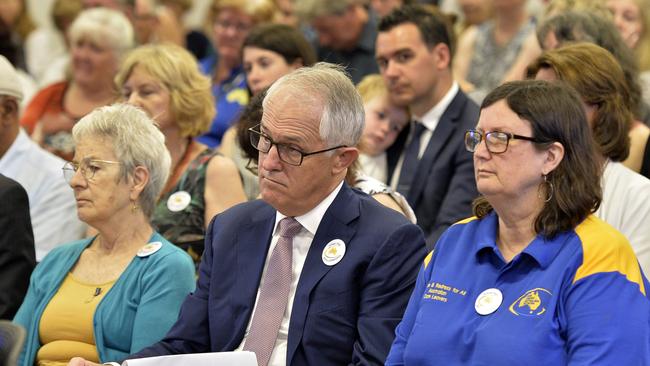
“For many Catholic clergy and religious, celibacy is implicated in emotional isolation, loneliness, depression and mental illness.
“Compulsory celibacy may also have contributed to various forms of psychosexual dysfunction, including psychosexual immaturity, which pose an ongoing risk to the safety of children.
“For many clergy and religious, celibacy is an unattainable ideal that leads to clergy and religious living double lives.”
In another controversial move, the commission has recommended the end of the secret confessional with children after revealing that some priests had used the confessional to sexually abuse children, mainly boys.
“We recommend that any religious institution with a rite of religious confession implement a policy that confession for children be conducted in an open space and in a clear line of sight of another adult,” it said.
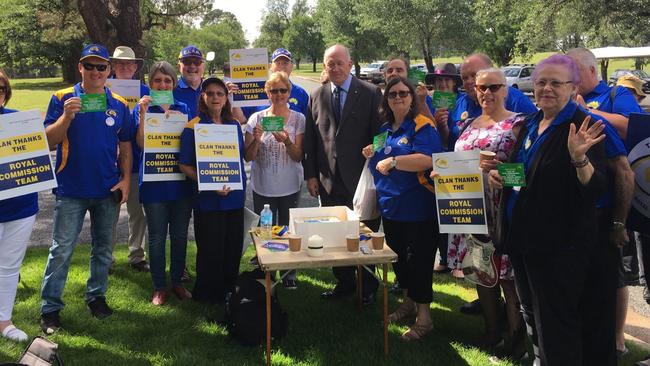
Governments have been given a six-month deadline to decide how children can be protected in the wake of the child sex abuse royal commission.
In its final report released today, the commission has recommended a new National Office for Child Safety to oversee the development and implementation of a national strategy to prevent child sexual abuse.
The office would be part of the Department of the Prime Minister and Cabinet.
It has also said that every year for the next five years all governments should be accountable in open reports to their parliaments on how they are implementing the commission’s extensive recommendations.
The long-awaited final report follows five years of hearings for the $500 million royal commission into institutional responses to child sexual abuse during which more than 2500 allegations have been reported to police as over 8000 survivors of childhood abuse gave evidence covering 4000 institutions.
Federal and state government have been asked to respond to the commission’s 189 recommendations within six months.
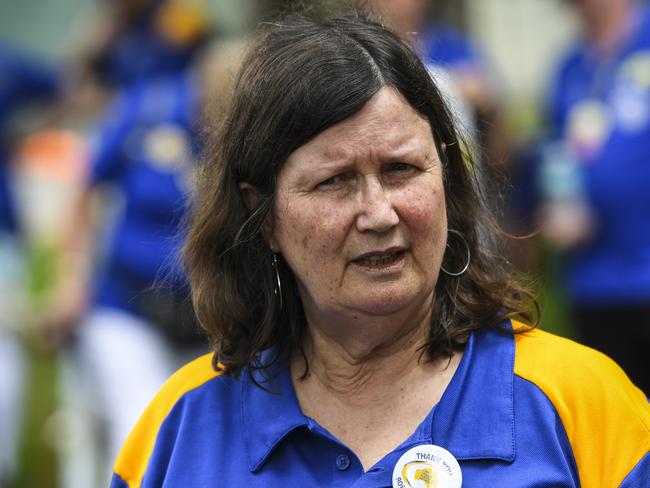
“There is no simple explanation for why child sexual abuse has occurred in a multitude of institutions,” the final report says.
“However, we have identified a number of ways in which institutions may, inadvertently or otherwise, enable or create opportunities for abuse.”
This includes setting the federal government setting up a mechanism to oversee the development and implementation of a national strategy to prevent child sexual abuse to be undertaken by the proposed National Office for Child Safety and be included in a National Framework for Child Safety.
“Australia’s governments and institutions are now responsible for responding to the Royal Commission’s recommendations and delivering the changes that the community has rightly come to expect,” the final report states.
“We have asked the Australian Government and state and territory governments to respond to our Final Report within six months of its release.
“In their response, governments should tell the community which of our recommendations they plan to act on and which they do not.”
The commission said that governments, institutions and the broader community had to share responsibility for keeping children safe.
REPORT TO GO TO THE VATICAN
Australian Catholic Bishops Conference president, Melbourne Archbishop Denis Hart, said the bishops will take the royal commission’s recommendations seriously and present them to the Holy See.
But he said the seal of the confession cannot be broken, even if priests face the prospect of criminal charges for failing to report child sexual abuse.
“My sacred charge is to respect the seal of the confessional,” he said.
“I revere the law of the land and I trust it but this is a sacred spiritual charge before God which I must honour, and I have to try and do what I can do with both.”
Archbishop Hart said he did not expect canon law would be changed regarding the sacredness of the confessional.
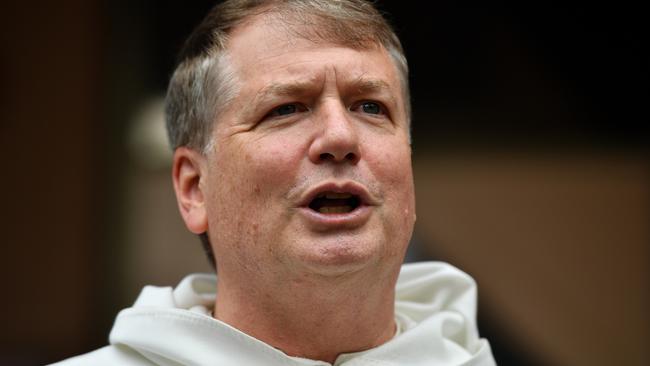
“I don’t expect that it will be changed but we are committed to doing whatever we possibly can because this has to be a top priority — no more child sexual abuse anywhere in the world.” Sydney Archbishop Anthony Fisher said changing mandatory reporting of abuse that comes to light through confession was “a distraction”.
“While we are yet to study what the commission has had to say about that, I think everyone understands that this Catholic and orthodox practice of confession is always confidential,” he said.
“Any proposal to stop the practice of confession in Australia would be a real hurt to all Catholics and Orthodox Christians.”
He added that confession rarely unearthed abuse and, on the rare occasion it did, may present an opportunity to move the offender to self-report. He struck a similar tone around the report’s recommendation that celibacy should be voluntary for clergy.
“We know very well that institutions who have celibate clergy and institutions that don’t have celibate clergy both face these problems,” he said. “We know very well that this happens in families that are certainly not observing celibacy.
“It’s an issue for everybody, celibate or not, how we make sure children are treated appropriately and kept safe.” Archbishop Fisher promised the royal commission’s 17-volume final report will not “sit on a shelf”.
He said the report, which asserted elements of the church’s structure and theology may have contributed to abuse, ushered in a period of “very serious self-examination”.
“We have to look very carefully and take very seriously what the commission has found in terms of more systemic issues in our culture, hierarchy, practices and beliefs as Catholics,” he said.
KEY RECOMMENDATIONS FROM THE CHILD ABUSE ROYAL COMMISSION
Australia-wide laws requiring all adults to report known or suspected child abuse in religious and other institutions.
— Failure to report should be a criminal offence.
— The laws will cover clergy who fail to report abuse admissions made during religious confession.
— The Australian Catholic Bishops Conference should ask the Holy See to consider introducing voluntary celibacy for diocesan clergy.
— A new national office for child safety, within the department of prime minister and cabinet.
— Office to evolve into a stand-alone statutory authority within 18 months. — A new federal minister responsible for mitigating risks of abuse, and working with states and territories to keep children safe.
— A new national framework for child safety by 2020.
— A new national website and helpline to report child abuse, education for children and parents, including in pre-schools, and help for adults who believe they’re at risk of becoming abusers.
Originally published as Final report handed down into child sex abuse


